Welcome to A Narrative of their Own, where I discuss the work of 20th century women writers and their relevance to contemporary culture.
This Sunday, 30th July, sees the International Day of Friendship launched in 2011 by the United Nations. It seems that there are so many of these international celebration days now! But it reminded me that some of the greatest women writers of the 20th century benefited from their literary friendships.
There are many examples of these literary friendships to choose from, and I have written before on both the sparky, tempestuous friendship between so-called literary rivals Katherine Mansfield and Virginia Woolf, as well as the quietly supportive and respectful one between Agatha Christie and Dorothy L Sayers.
But one I wanted to explore today is the unusual friendship between one of my favourite modernist writers, Jean Rhys, and her indomitable editor, the late, great, Diana Athill.
Famously a difficult and obstinate writer, Jean Rhys lived much of her later life as a recluse in Bude, Cornwall in the late 1950s and 60s, (which she apparently amusingly referred to as ‘Bude the Obscure’). She later moved in the 1960s to a small village in Devon.
Following her lively and often tragic early years, which included periods of alcoholism, an abortion which almost killed her, a child who died in early infancy, a spell in prison, and poverty, her novels and short stories are lively and often tragic portrayals of women living in similar circumstances to herself. Many are set in Europe - particularly Paris - and feature women falling in love, becoming involved in love triangles, and the plight of the single impoverished woman of the early 20th century.
Falling into abject obscurity and often turning to alcohol to compliment her loneliness and what she often saw as rejection by the literary community, Rhys was ‘re-discovered’ when Selma Vaz Dias put out an advertisement to enquire about her whereabouts. She was seeking the rights to adapt one of Rhys’s earlier novels, Good Morning Midnight, for radio. Luckily, Rhys responded, leading to a long-lasting and collaborative friendship between the two women, including Dias encouraging Rhys to begin writing again.
Rhys had begun work on a novel sometime in the 1950s called Wide Sargasso Sea a prequel to Charlotte Bront͍͍͍e’s Jane Eyre which showed the story of the ‘madwoman in the attic’, Rochester’s first wife (named Bertha in Bronte’s novel). When UK publisher Andre Deutsch showed interest in publishing the novel, editor Diana Athill, together with fellow editor Francis Wyndham, both believing in the talent of Rhys, began the attempt to revive interest in her work.
What sprung from this first contact was a warm, often exasperating, but supportive friendship between the two women.
Initially, Rhys informed the publishing house that she could complete the manuscript within six months. Athill and Rhys corresponded for the following seven years however, as Rhys struggled over the writing of the novel, eventually agreeing to meet for lunch in London when Rhys was to deliver her almost finished manuscript.
Just when it seemed the two would finally meet, however, Athill received a call from a panicked manager of the hotel Rhys was staying in, stating that Rhys had had a heart attack. Now in hospital and later convalescing, it was during this time that Athill and Rhys got to know each other better. Athill later observed that the experience ‘with all the usual intimacies of nightdress washing, toothpaste buying and so on, plunged us into the deepest end of friendship’.
Working with Rhys to bring the novel to print, however, was no plain sailing. A debilitating perfectionist, and despite the fact that the manuscript at the time of her heart attack had required only a few lines adding, it took Rhys another two years to finish. A staggering nine years after agreeing to publish Wide Sargasso Sea, in 1966, Athill travelled to Devon to collect the final manuscript.
The book brought Rhys to the attention of the public again and her publishers went on to re-publish some of her earlier short-stories, as well as new ones written during her period of obscurity. She has gone on to be celebrated as one of the foremost writers of modernist fiction. Her books and stories feature a flowing, stream-of-consciousness style and sparse narratives which question and provoke discussion into women’s lives and place in a society often weighted against them. They are often closely related to Rhys’s own life experiences, however to put them into the box of autobiography is to miss her innate talent for storytelling and the weaving of women’s narratives.
Despite their later friendship, Athill and Rhys couldn’t have come from different backgrounds. Athill was a published writer as well as editor. She wrote short stories and had published the first volume of her memoirs by the time she came to work with Rhys.
Almost twenty years Rhys’s senior, she had grown up on a country estate in Norfolk, and thus her background allowed her a completely different social status to Rhys, who struggled through poverty and abandonment for much of her life. Similar to Rhys though, Athill shunned convention, preferring to attend Oxford University and then enter the publishing industry, rather than marry and settle down as convention would expect.
Though Athill remained close friends with Rhys until her death in 1979, it was not always an easy role for her. Rhys was said to be quite childlike in her attitude, often demanding to be taken care of, and was extremely pedantic about her writing. Despite (or because of) this, following Rhys’s death, Athill claimed that she had learnt a lot about writing from Rhys, including how to write concisely and with clarity.
Living to the age of 101, Athill enjoyed literary success of her own throughout her later years, releasing several books including the wonderful Stet, which is a lively memoir of her time working as an editor, and in which she writes about her friendship and working relationship with Rhys, amongst other writers.
Despite her late literary success, Rhys was not a happy woman. She remained living in her remote spot in Devon until her death, commenting that her literary success had ‘come too late’.
When asked shortly before her death about her writing life, she responded that she would ‘rather be happy than write’. When she died at age 88, Rhys left behind an unfinished autobiography she had begun dictating only a few months before, which was published posthumously as Smile Please: An Unfinished Autobiography.
The book covers fragments of Rhys’s early life growing up in Dominica, as well as her experiences as a young woman. I have to admit that it was a bit of a disappointment in that it really felt ‘unfinished’, and bearing in mind that throughout her life she had been a stickler for the perfection of her prose, I am not sure that she would have wanted the book to be published in the unfinished format it was.
However, as a deeper understanding of the origins of the girl who became one of the foremost writers of modernist fiction - as well as a frank and honest reporter of women’s narratives of the time - it is still worth a read, as is the wealth of stories she left behind.
Further reading:
I can’t recommend Stet highly enough for an insight into the life of a publisher, the writers she worked with, and the enlivening spirit of Athill herself.
Smile Please: An Unfinished Autobiography by Jean Rhys is worth a read for an insight into Rhys’s childhood in Dominica.
All of Rhys’s fiction! But in particular, Quartet, her debut novel published in 1928 and set in the bohemian cafe society of Paris. It is said that Rhys used as inspiration for the novel the love triangle between herself, writer Ford Madox Ford (who became her literary mentor), and his wife, Stella Bowen.
I will look at other writer friendships in future newsletters, as it’s always heartening to see the ways writers have benefited from the support of their peers!
Speaking of supporting writers…if you enjoyed this post and would like to support my work by becoming either a free or paid subscriber, please check out my subscription tiers here. I would be ever so grateful! :)

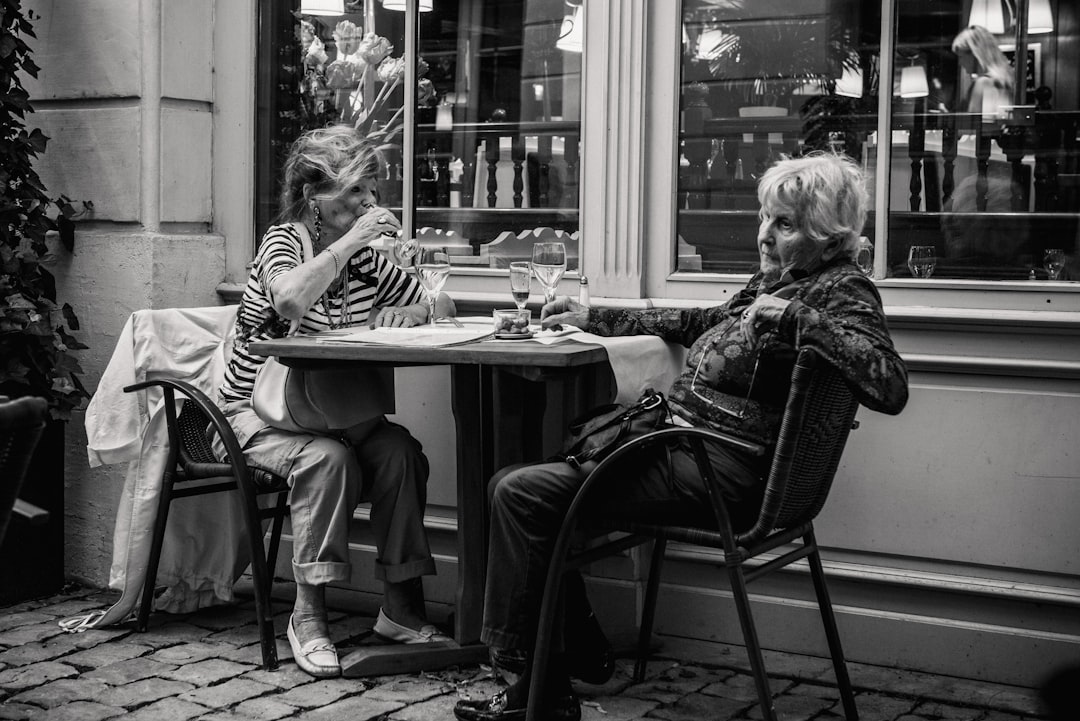


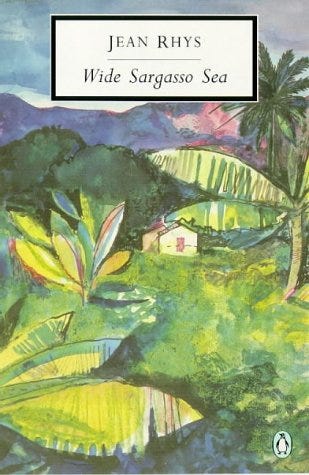
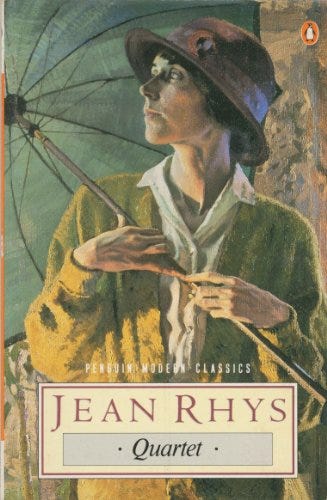
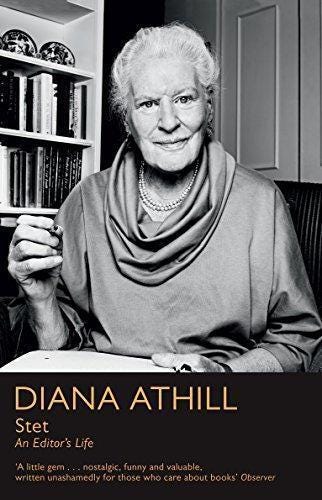
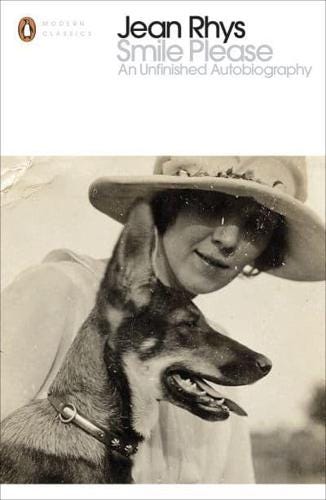
Saw an interview with Diana Athill when she was about 95, that woman could still move mountains, she was a force to be reckoned with so am sure she was a fantastic friend to have.
This is lovely, Kate, thank you. I adore all of Rhys's novels, particularly Voyage in the Dark. To a theatre person it seems sad and true. I agree about Smile Please but I still found it fascinating. I remember loving her description of her trip to London Zoo, and the 'resentful' Dominican parrot and the hummingbirds, all fed a ludicrously archetypal English meal of bread and marmalade, all desperate to escape -- just like Rhys, just like her heroines. A quintessential 'expat' moment, a stranger in a foreign city, the absurdity of it all. Wide Sargasso Sea: probably one of the most studied books in the canon -- and when I returned to it not that long ago I kept finding more and more and more.